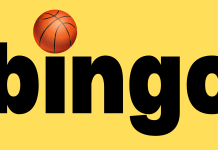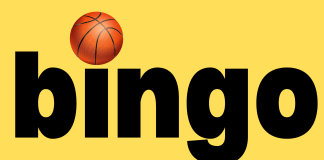 I had always thought of dyslexia as being a debilitating disorder affecting reading. I thought that if an individual had dyslexia, they would struggle and be unable to participate in many activities. I also, shamefully, thought that having dyslexia was a sign of low intelligence. However, my brother-in-law helped me ditch all of those myths! He is far from unintelligent and in fact, is quite the opposite. Although he never received much successful intervention for his disorder, he is a capable, fully functioning member of society. While he has difficulty reading, many a times he has slowly read through Bible versus to lead youth and adults at his church. While he cannot read music, he is a talented musician who can hear a song once and then play it on an array of instruments he has mastered (without lessons mind you) including piano, drums, singing, or guitar. While he sometimes mixes up letters when writing, he wrote a 16-foot love note on a measuring tape to propose to his fiancé. While he chose to not attend college, he has found his niche with working as a farmer and construction worker. Further, he is the most talented carpenter I have met, and is single-handedly building his own 5,400 square foot house! He is living proof that an individual can live a happy, rich, and productive life despite having dyslexia. While he has had his difficulties and struggles, he perseveres and continues to make a difference in his family and community every day.
I had always thought of dyslexia as being a debilitating disorder affecting reading. I thought that if an individual had dyslexia, they would struggle and be unable to participate in many activities. I also, shamefully, thought that having dyslexia was a sign of low intelligence. However, my brother-in-law helped me ditch all of those myths! He is far from unintelligent and in fact, is quite the opposite. Although he never received much successful intervention for his disorder, he is a capable, fully functioning member of society. While he has difficulty reading, many a times he has slowly read through Bible versus to lead youth and adults at his church. While he cannot read music, he is a talented musician who can hear a song once and then play it on an array of instruments he has mastered (without lessons mind you) including piano, drums, singing, or guitar. While he sometimes mixes up letters when writing, he wrote a 16-foot love note on a measuring tape to propose to his fiancé. While he chose to not attend college, he has found his niche with working as a farmer and construction worker. Further, he is the most talented carpenter I have met, and is single-handedly building his own 5,400 square foot house! He is living proof that an individual can live a happy, rich, and productive life despite having dyslexia. While he has had his difficulties and struggles, he perseveres and continues to make a difference in his family and community every day.
If I had been exposed to the correct information about the disorder, I never would have had the preconceived notions I did. So let’s learn a little about dyslexia while ditching some of our ideas about the disorder!
 MYTH 1: Dyslexia is a vision disorder.
MYTH 1: Dyslexia is a vision disorder.
Wrong! Dyslexia is a neurological, language-based learning disorder that affects how the brain processes and interprets information. Studies have linked dyslexia with genes that effect how the brain develops and has been shown to run in families. However, no single cause for the disorder has been found. Additionally, a high comorbid incidence of ADHD and dyslexia has been found to exist.
MYTH 2: Dyslexia only affects reading.
Wrong again! Dyslexia literally means “disorder of reading,” but given that written language goes hand in hand with spoken language, difficulties span beyond reading. Individuals with dyslexia may show difficulties with writing, spelling and recalling/interpreting verbal information.
MYTH 3: Individuals with dyslexia have low IQs.
Unfortunately, individuals with dyslexia are often labeled as less intelligent. However, most individuals diagnosed with dyslexia are at or above average level of intelligence.
MYTH 4: My child wrote one letter backwards, so she must have dyslexia.
Not necessarily. While this can occur, the following difficulties tend to be the most common (although not inclusive or exclusive) symptoms of dyslexia:
Birth to Pre-School Risks
Late talking
Slow to learn new words
Difficulty with rhyming
School Aged Symptoms
Below grade level reading ability
Difficulties with understanding and processing what is heard
Difficulty comprehending rapid instructions
Unable to follow more than a one-step direction
Problems with remembering sequencing
Difficulty with decoding new words
Spelling
Seeing letters and/or words in reverse
Phonological awareness deficits (ability to manipulate sounds/words)
Teen through Adult Symptoms
Difficulty reading
Time management difficulties
Difficulty summarizing stories
Difficulty memorizing
MYTH 5: Dyslexia cannot be treated, so therapy is useless.
Not true! While dyslexia itself cannot be cured, therapy can assist an individual to learn strategies to cope with their deficits. Early detection and intervention is best, however if you are concerned that your child, teenager, or even you yourself may have dyslexia, contact your doctor. Doctors will complete an evaluation that may involve a multi-disciplinary team. It is never too late for an individual with dyslexia to live a normal, happy and functional life.
Thank you again to the Children’s Center for Therapy for helping us ditch these myths, and better understand dyslexia. And, just in case you missed this morning’s post on dysgraphia, click here to read it. For more information on the Children’s Center for Therapy in Iowa City, click here.












Halo Premium All USA created e-liquid is right here. Electronic cigarette’s seem to be the wave of the future concerning new ways of delivering the satisfying dose of nicotine in a safe and
less harmful manner. The slimmer and also reduced styles make them very lighter than very mini designs.